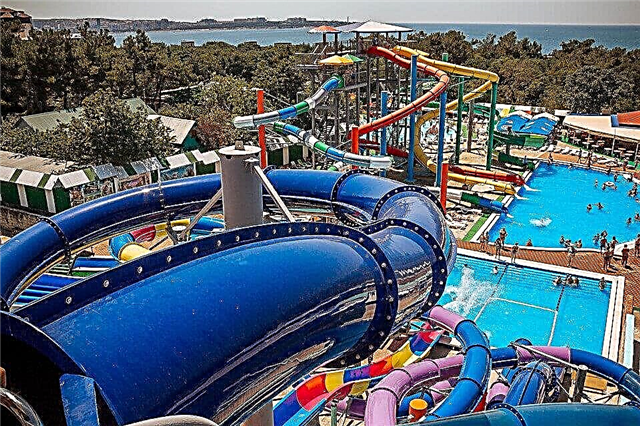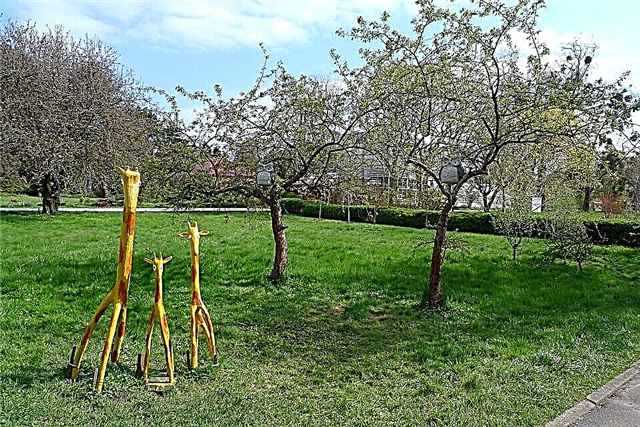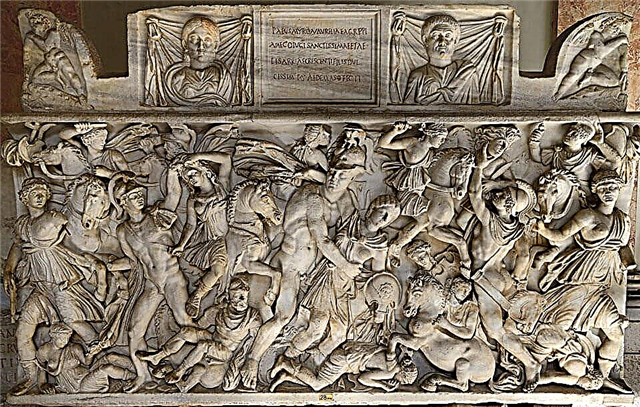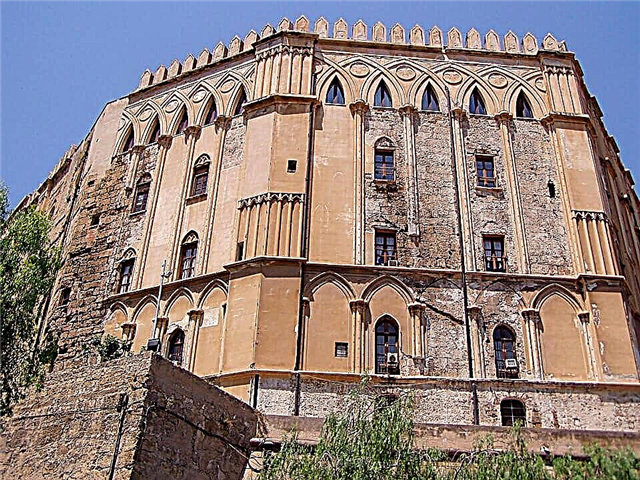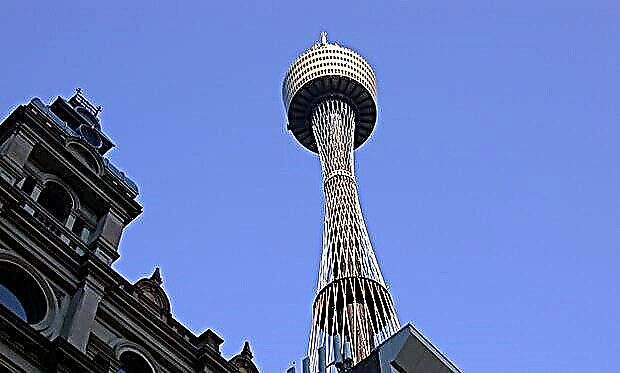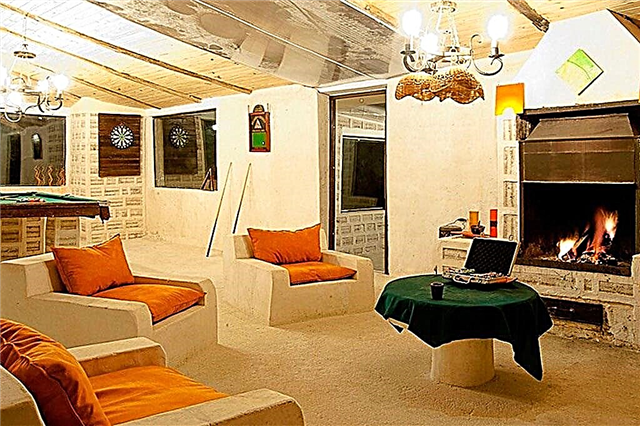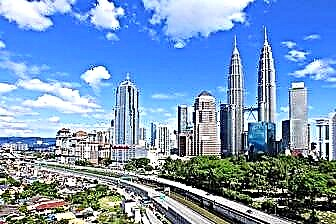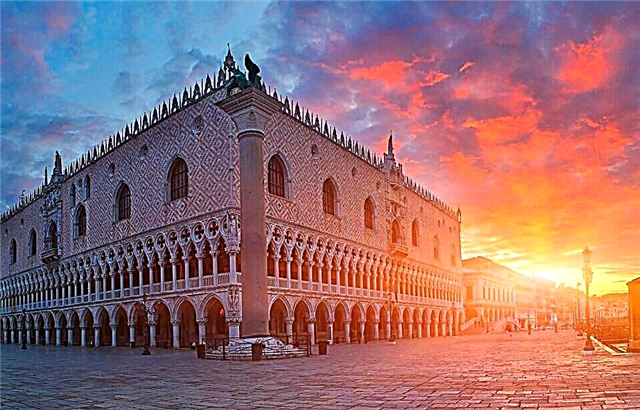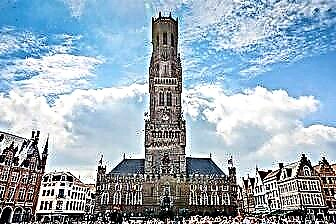Fabulous Bruges seems to be torn out of the usual flow of time. Here there is a feeling of unreality and a revived past. The Middle Ages materialize in amazing Flemish Gothic houses, Romanesque quarters and the appearance of ancient churches. In Bruges, costumed theatrical processions and festivals are often held, during which the townspeople dress up in traditional costumes.
The historic center of Bruges is under the protection of UNESCO, as it has fully preserved its architectural appearance. Cute "gingerbread" city houses are entwined with ivy, the facades are decorated with weather vane, and the streets are unusually calm and peaceful atmosphere. From time immemorial, delicious beer and excellent chocolate have been brewed in Bruges, so tourists will also find gastronomic pleasures here.

The best hotels and hotels at affordable prices.
from 500 rubles / day
What to see and where to go in Bruges?
The most interesting and beautiful places for walking. Photos and a short description.
Market Square
The central square of Bruges, on which, since the Middle Ages, all the most important city organizations were located: the court, the mayor's office, the post office, the shopping arcade. Now the square is decorated with magnificent buildings in the Flemish Gothic style, houses of trade guilds with emblems, monuments to famous townspeople. Every Wednesday, a market is open on the square, and in winter, an elegant Christmas market opens.

Belfort
Tower of the XIII-XV centuries, symbolizing the desire of the inhabitants of Bruges for independence and freedom. The building is 83 meters high, and there is a bell tower at the top, which consists of 49 bells. In past centuries, the tower served as a watchtower, since it was easy to see the enemy approaching the city from it. Inside are kept old letters confirming the rights and freedoms of residents.

Bruges Town Hall
The town hall is located on the central Burg square. The building was erected in the late XIII - early XIV century in the Flemish Gothic style. The architectural features of the building are repeated in the town halls of other Belgian cities: Leuven, Ghent, Brussels. The Burg square itself is the old center of Bruges, where the first Flemish count built his fortified castle. The square is surrounded by historical buildings from different eras and architectural styles.

Brewery "De Halve Maan Brewery"
Belgium is renowned for its brewing traditions. Located in the heart of the city, De Halve Maan Brewery was founded in the 16th century, but the building that has survived to this day dates back to the middle of the 19th century. Here beer is made according to the traditional Belgian recipe - with a sour taste, unclear and with a short shelf life. De Halve is a small family business that produces its own beers.

Groeninge Museum
An art gallery founded at the beginning of the 18th century by members of the free society of artists. The museum houses an invaluable collection of Flemish masters: Jan van Eyck, Hugo van der Goes, Hans Memling, Rogier van der Weyden and others. In separate rooms there are paintings by Renaissance and Baroque masters, as well as works by artists of the 19th century. The Gruninge Museum is one of the most interesting in Bruges.

Chocolate Museum
Once upon a time, a Belgian pharmacist created a unique cough medicine. He made bitter chocolate, and since then the history of this delicacy has begun. Bruges is often referred to as the chocolate capital of Belgium. In the Choco Story Museum you can see the history of the local chocolate industry and taste the most incredible and unusual varieties of delicacies. The museum exhibits hundreds of chocolate sculptures in a wide variety of colors and shapes.

St. John's Hospital
The oldest hospital in Europe, organized by monks to treat the poor and pilgrims. It is housed in a building of austere and powerful medieval architecture. In the Middle Ages, this hospital was the largest medical institution in the entire district. The hospital chapel houses the Memling Museum, which houses the works of the famous and skillful master Hans Memling, created by him by order of the monks.

Gruuthuse Museum
A museum displaying rich collections of sculpture, furniture, tableware, tapestries, ceramics and other decorative items of past centuries. The exposition of the museum covers several historical periods, it is located in a building of the 15th century, which was owned by the aristocratic Van Gruuthus family. The collection began to form in the middle of the 19th century, it included many exhibits from the family's private collection. The museum is closed for restoration until 2018.

Basilica of the Holy Blood of Christ
The basilica was originally a chapel that was built in the 12th century to store pieces of sheep's wool with traces of the blood of Christ. These relics were brought from the Crusade and given to the Flemish Count Diederik Van de Alsace. In the architecture of the basilica, the medieval Romanesque and later Gothic styles met. The church contains the relics of St. Basil, the great Byzantine preacher.
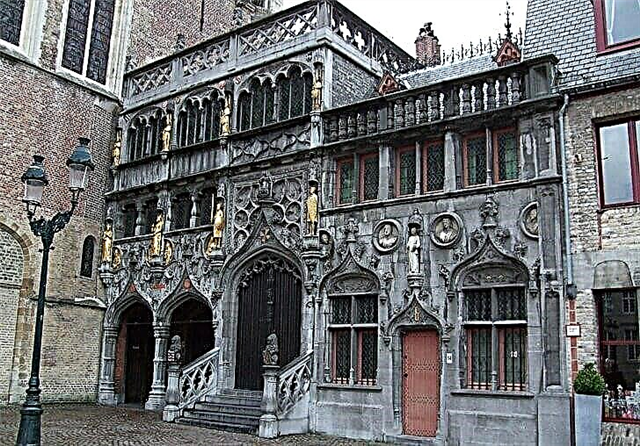
Church of Our Lady
Bruges Cathedral, topped by a 122-meter bell tower. This graceful 15th century tower is a recognizable symbol of the city. Inside the temple is one of the greatest works of art from the Renaissance, Michelangelo's statue of Our Lady and Child. The remains of the last Duke of Burgundy Karl the Bold and his daughter Maria lie in the church.

Jerusalem Church
An ancient temple of the 15th century, which has survived to our times in an almost unchanged form. The interior decoration also survived five centuries. The church is a copy of the Jerusalem Church of the Holy Sepulcher. It was built by brothers from the noble Adorn family after their pilgrimage to the Holy Land. Inside is a part of the cross on which Jesus was crucified and several other significant relics. The church still belongs to the descendants of the Adorn family.

Cathedral of Saint Salvador
The main city cathedral. Its history began in the 10th century with a small parish church. The brick building of the temple was erected in the XIII-XIV centuries. From the outside, the cathedral seems gloomy and gloomy. However, this impression is compensated by the rich interior decoration. Over the centuries, the temple has undergone minor damage, but it has managed to maintain its original appearance thanks to careful renovations.

Beguinage
A commune like a monastery, where single women found shelter. But they did not take vows of celibacy and could leave the beguinage at any time. Such associations were common in the 13th century. Courtyard of the society of beguines in Bruges named after St. Elizabeth occupies an entire block. It was founded in the first half of the 13th century, but most of the buildings date back to the 17th - 18th centuries. The predominant architectural style of the complex is Baroque.

Lake of love
A lake of amazing beauty, surrounded by lush blooming vegetation and romantic medieval buildings. People come here to relax, enjoy the silence and special atmosphere. The lake is home to magnificent swans, which have been bred since the 15th century by order of the former ruler of Flanders, the Austrian emperor Maximilian. The ruler and his descendants have long been in the past, and beautiful birds still adorn this place.

Canals of Bruges
City canals are not only an attraction that gives Bruges a picturesque look, although walks along them are quite popular among tourists. The canals serve as transport arteries. For many centuries, goods were delivered to the city along them and transport links were carried out. Without the network of canals, Bruges would look more gloomy and harsh, and together with them - the city claims to be the next "Venice of the North".


